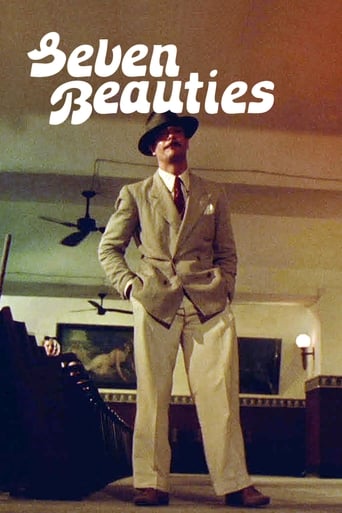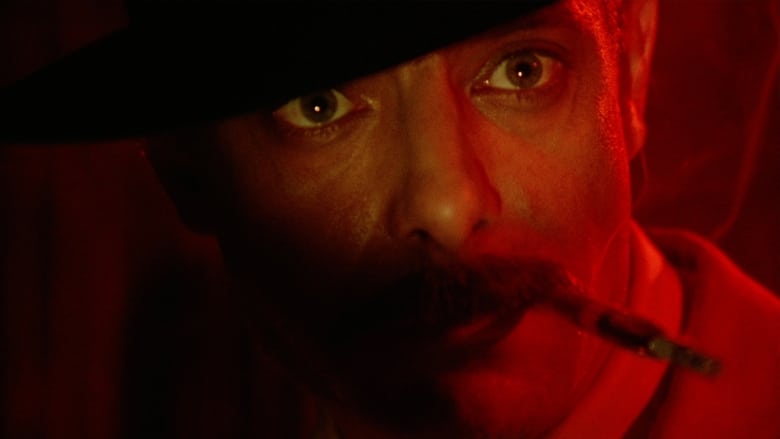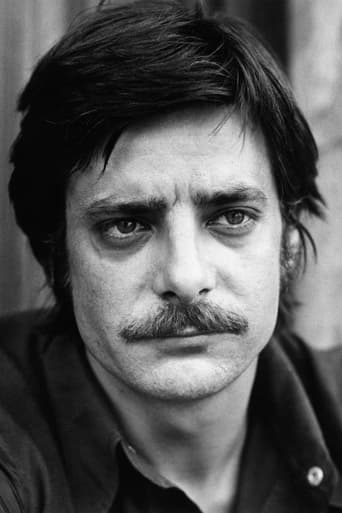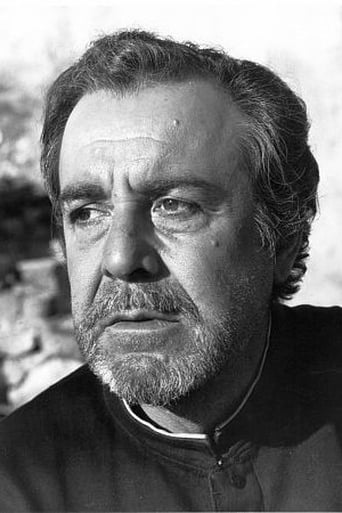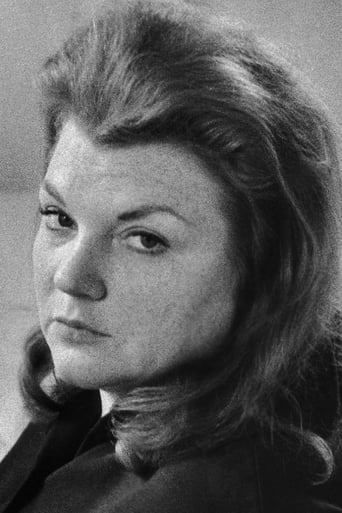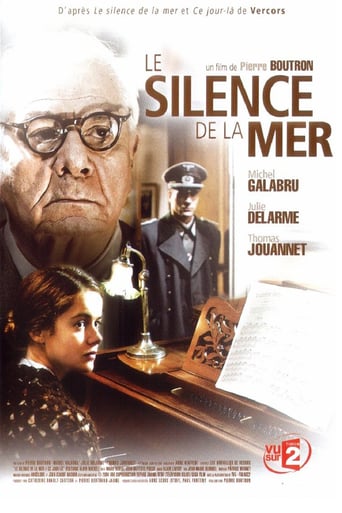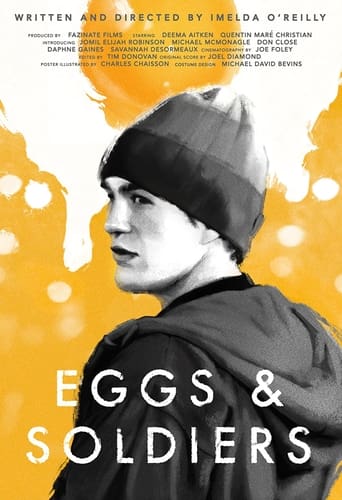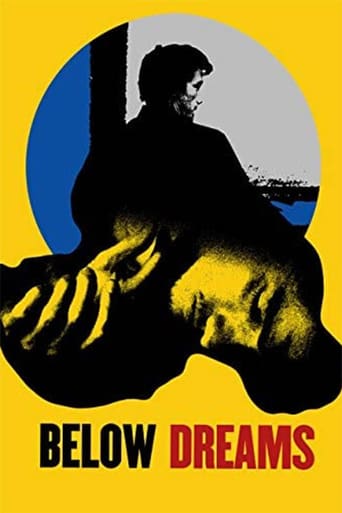Seven Beauties (1976)
Pasqualino Frafuso, known in Naples as "Pasqualino Seven Beauties" is a petty thief who lives off of the profits of his seven sisters while claiming to protect their honor at any cost, Pasqualino is arrested for murder and later sent to fight in the army after committing sexual assault. The Germans capture him and he gets sent to a concentration camp where he plots to make his escape by seducing a German officer.
Watch Trailer
Cast


Similar titles
Reviews
This is one of the few movies I've ever seen where the whole audience broke into spontaneous, loud applause a third of the way in.
Blistering performances.
The film never slows down or bores, plunging from one harrowing sequence to the next.
An old-fashioned movie made with new-fashioned finesse.
For most films that I praise, I would jump at the opportunity for another viewing. Not so with Pasqualino Settebellezze (Seven Beauties). It explores extremely disturbing and sickening ideas that I hate to think about. Unfortunately, I feel that watching it is necessary. It is an Italian film about a man named Pasqualino Frafuso. A soldier for fascist Italy in World War II, he is a despicable but complicated character. I hated him for practically the entire film, although I noticed a hint of sympathy towards the end. Thats not to say he was a bad character; Giancarlo Giannini does an amazing performance as Pasqualino. His postures, expressions, and mood were perfect. After he does something horrible, you can sense regret in his character as he develops. Highly imperfect characters are usually a gamble, but it worked out well in this case.The plot alternates between two phases of Pasqualino's life. The first begins with Pasqualino deserting his army train during combat. After wandering into a forest, he and a friend get captured by Germans and sent to a concentration camp. The recreation of the concentration camp is eerily spot-on. At this point, Pasqualino vows to find a way out of the camp. He faces a grueling trial to gain the affection of a physically and mentally unattractive female Nazi commandant. The second plot line reviews Pasqualino's life as a young man with seven sisters. We see the destructive flaws in his character. All of the crimes he commits as a young man return to haunt him when he is in the camp.The film does not hold back on political or social messages. Pasqualino is revealed as a character who does not think beyond self preservation and reputation, making him the perfect tool. He endorses Mussolini's beliefs just to make life easier for himself. When people with real political ruminations talk to him, he rubs off their ideas without a second thought. He begins to understand his mistakes toward the conclusion of the film, but is forced into tough circumstances.Pasqualino Settebellezze does not fear to explore the boundaries of society that many people choose to ignore. If you are going to watch this, be prepared.
Seven Beauties goes for about the first hour seeming to be, for the most part, a wild lot of absurd and/or fully rounded moments of wit from the physical (moving a large dead body around a room, a broom and pail of things thrown after getting beat to the grown, and most notably stealing food while rambling on in Italian to a German in stunned silence), to things based just on the wild mood of Italian characterizations. After all, how can it not be when a man has about seven sisters, give or take a couple, and a house full of kids and estrogen? Surrounding this absurdity, and the sort of smooth-operating would-be ladies man but stern-family-man Pasqualino (Giancarlo Giannini), is real danger in the country, and after becoming a soldier following a series of very bad circumstances (murder, a stint in a mental hospital), he also gets thrown into a prison-cum-concentration camp, where he thinks that somehow he can pull out something of emotion from the bloated brick-wall of a b***h-witch German Commandant (Shirley Stoler). This, however, brings on a downfall that acts as something of a purely existential crux: he'll have to live with it for the rest of his life- or some form of life he's chosen over the firing line.Seven Beauties is loaded with creativity and an original perspective right from the beginning. I loved the opening montage, where Wertmuller puts together images of Nazis and world war 2 bombings put to 70s progressive rock music and Giannini in voice-over doing some strange quasi-singing. Then the story, unfolding in appropriate non-linear form, has Pasqualino trying to avoid a firing line he and his socialist friend escape from (he doesn't want to escape from it, but Pasqualino does, leading to the ultimate irony in the prison camp). Then something tricky: treading the line between making scenes really emotionally compelling in terms of the dramatic conflict- which in true Italian fashion ala Pasqualino's striptease sister, whom he fervently disapproves of- while also adding hysterical comedy on the same level.There's sincerity all the time, but also something of a wink from Pasqualino, at least at first, if only subliminally through his oddly traditional character. Then, as the prison camp scenes go forward, things become (very) dark with the set design being extremely stark and decayed with the buildings and blank look to the walls, and the Commandant, who as played by the scarily one-tone Stoller, a Nazi version of Nurse Ratched, minus the veneer of "we're here to help you" and replaced with the cruelest form of human connection- pure indifference and contempt that gives fascism its bad name.It's fascism, by the way, that is laced in the cracks in the story, as we see in a scene between the Socialist and Pasqualino, where he can't get his head around the idea that fascism and Il Duce aren't good providers. Behind the real human choices and lack of compassion in this world of Wertmuller's, there's the social framework that puts all these characters into this wretched existence. Giannini, all the while, is absolutely perfect in the role. First there's just the look on his face, his eyes, where early on he's the 'man' of the family, in charge and taking names, though mostly in threats. When there's panic to be had, like in an accidental murder, then we start to see cracks in his veneer of more slick attitude. These become more pronounced in the mental hospital, including a great scene of reaction shots as he tries to have his way with a woman tied down to a bed. By the time prison comes, he's been broken down, and his pleading with the Commandant- who shows next to no emotion, whatsoever- seems all the more genuine, not so much as a con, and it's significant by making comedy in a German prison environment so uncomfortable and bleak. The last shot is key, and one where Giannini's performance comes full fold; this is one where he goes through many emotions, through a very expressive face, ending on a blank. Wertmuller as director is fearless in her attempts to intermingle just little slices of comedy, like Pasqualino's "seven beauties" explanation. Or as he hums and whistles quietly early on at the Commandant, quietly getting her attention. Even over the top bits with the prostitute sister, or with the little flashbacks to his childhood, it's an honest comedy, that can only come out of a confident director in tone and manner with the actors. And when it comes to style, she has one of the key cinematographers of the mid 20th century on her side (Tonino Delli-Colli), but it's sometimes more subtle than a Fellini, with a documentary approach to many scenes, and an editing style that's a little leaning to the conventional side when not intermingling various images and montages, or cutting to trees to transition. But there are many scenes for movie buffs to remember just in visual terms; the prison is presented in long shots displaying the many souls lost in the deadened atmosphere of total dominance, and specifically the scenes with Pasqualino and the Commandant in her office are lit in a stark green, and later blue, add not so much the characters' psychological mood but just a sensibility of dread and the coldness of it all.In all, Seven Beauties is a disturbing work of of minor genius, and it's unfortunate that Wertmuller is over-looked nowadays as she's one of those rare filmmakers who can tackle the sad truths of people that are faced when there's real consequences to not really being apart of anything except for oneself and so-called "family pride". At the same time Wertmuller gets the viewer to laugh at it during the process, be it through choices in music or simply in Giannini, who's got more range than many a Hollywood actor today. A+
Lena Wertmuller has created a fascinating cocktail, one part anti-war film, one part medieval morality play, one part black comedy, shaken vigorously and poured over plenty of fine acting.If growing up in Fascist Italy doesn't give a young boy a slightly distorted sense of manhood, having your bricklayer father die leaving you the sole male in a family of a mother and seven sisters, made sure of the fact; so we find Pascolino, a handsome but strutting ladies' man who carries a pistol in his belt to "command respect." And so begins a roller coaster of events both comic and tragic that deliver him like so many other young men, into the maw of WW2, completely unprepared to cope with the stupidity and inefficiency of large governments at war, the contempt for both the sacred and the profane, the massacre of civilians unlucky enough to be in the way, the destructions of villages, towns, even entire cities, in short these young men are overwhelmed by the evil that is created from both sides of every war as surely and repetitively as an ocean beach is overwhelmed by the incoming tides.Seven Beauties makes its anti-war thrust accessible like another more famous film, Catch-22, by blurring it's humor into the absurd. When Wertmuller shows us the vapidness of Pascolino's life as he struts around the family business or ghoulishly dismembering a body he killed, I think she is taking a more profound view of human existence than just an anti-war film, by showing us the inconsistencies, follies, and sin that inhabit everyday life, might even be the building blocks of national wars. Pascolino's supposed credo is respect, yet where is the respect in defending your sister's honor, if she is in love with her pimp; of challenging the pimp mano a mano, only to kill him by accident ; of volunteering to fight for his country, as a way to escape from a psychiatric ward; of shooting your friend, to save your own life; of finally returning home from defending your country, to find your seven sisters have become prostitutes? The inevitable question becomes, what is there to respect? Even the representative of authority and control, the prison camp commandant, is swept away by the follies of her own system and the temptations of power, while Pascolino is an Everyman, demonstrating the inevitable folly humankind falls into trying to live apart from God.
The old adage: "He who fights and runs away Lives to fight another day" seems to pretty well summarise Pascalino's attitude to life. He is very much on the run through much of this film. After all he did murder a man who deflowered his sister. But then he believes murder is permissible under some circumstances e.g. when the honour of the family is at stake. As for war, why kill people you do not even know? This and many other questions he keeps asking himself.I happened upon this gem of a film quite unexpectedly. The title meant nothing to me. For the first part of the film I was disarmed by a light comedy, so very Italian, about a "casanova" who had all the ladies swooning. I was enjoying his antics (perhaps learning a thing or two) when suddenly, captured and thrust into the confines of a Nazi prison camp he became a tragic figure indeed as he tried to seduce (using every known technique)the very brutal Commandant, a fearsome woman to be sure.The horrors of war and the terrible decisions which have to be made to save one's own skin becomes the major thrust of this film.It's a thoroughly entertaining anti-war film with some home-spun philosophy about war and life in general which deserves deep thought by those contemplating any type of warfare. The message is just as pertinent today as it was when this film was made nearly 30 years ago.

